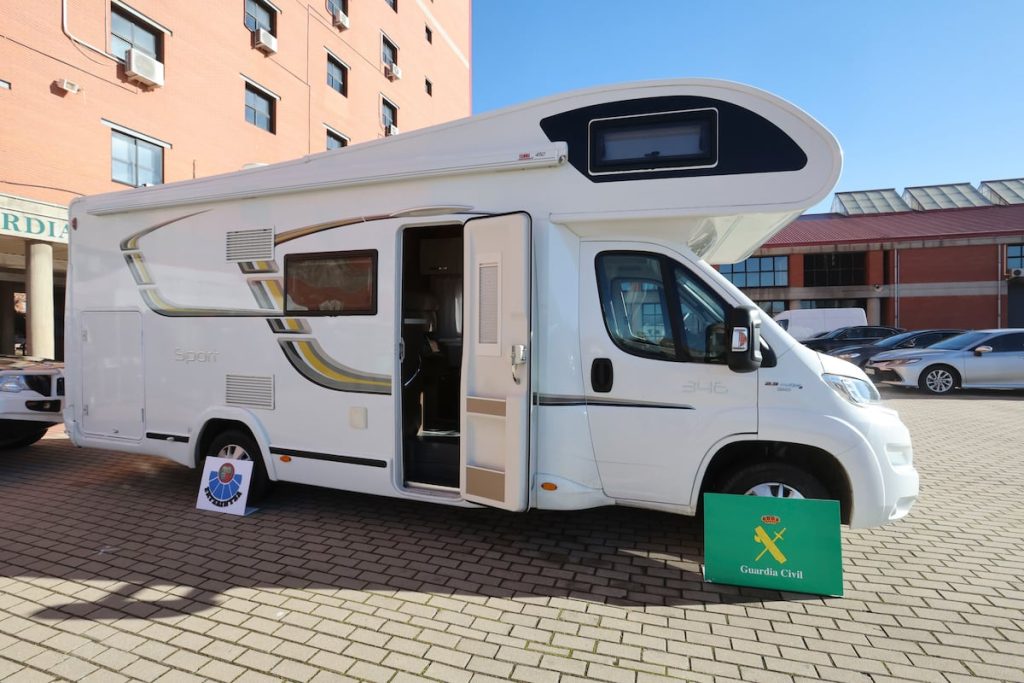On December 20th, just five days before Christmas, three men were arrested by the Guardia Civil at a gas station in Robliza de Cojos, a small town in the province of Salamanca with only 190 inhabitants. The agents found 600 kilos of cocaine in the motorhome the group was traveling in, which they had tried to camouflage in the dense holiday traffic. The Operation Ergu, revealed by the Government Delegation in Castile and León on Thursday, has uncovered a criminal structure that was smuggling drugs from South America to northern Spain and other EU countries, with a stopover in Portugal. The arrests were the result of collaboration between the Guardia Civil of Salamanca and Cantabria and the Ertzaintza, as the gang members were living in the Basque Country.
The investigations revealed “a criminal structure dedicated to the illegal importation of drugs” from South America to Europe, using Portugal as the entry point into the continent. The drugs were then transported through Spain as a storage and distribution point. The criminals had set up a logistics system that allowed them to move cocaine using various means of transport equipped with hidden compartments or other features to transport large quantities of the substance. They used an RV to cover up the trips needed to transport cocaine from Portugal to northern Spain during the Christmas holiday, taking advantage of the high number of road trips across the country, allowing the motorhome to blend in more easily.
The intervention, with support from the Judicial Police of Portugal, took place on the afternoon of Friday, December 20th in Robliza de Cojos, Salamanca. The driver of the motorhome and two other individuals in a high-powered car with a French license plate, acting as a lookout vehicle to warn of police presence and ensure the safe delivery of the drugs, were arrested. The three men, all Spanish nationals residing in the Basque Country, were brought before the court in Laredo, Cantabria, and were remanded in custody. The Guardia Civil and Ertzaintza also searched three properties in Bizkaia and Gipuzkoa, seizing various high-end vehicles worth over half a million euros, with their high performance as a guarantee of escape if police were to intervene. They also found cash, money counting machines, and packaging and weighing equipment, all indicating their involvement in drug distribution and money laundering.
The operation successfully disrupted a drug trafficking network that was operating between South America, Portugal, and Spain, with plans to expand into other parts of Europe. The seizure of 600 kilos of cocaine is a significant blow to the criminal organization, which had been using sophisticated methods to transport and distribute the drugs. The collaboration between different law enforcement agencies led to the identification and dismantling of the network, preventing further illegal activities and potentially saving lives from the harmful effects of drug trafficking. The investigation continues to determine the full extent of the criminal operation and bring all those involved to justice.
The use of an autocaravana to transport such a large quantity of cocaine highlights the audacity and ingenuity of the criminals involved in the operation. By taking advantage of the holiday season and the increased road traffic, they sought to evade detection and carry out their illegal activities under the guise of normal travel. The successful interception of the drug shipment and the subsequent arrests demonstrate the effectiveness of law enforcement agencies in combating organized crime and protecting society from the dangers posed by drug trafficking. The seizure of money and assets connected to the criminal network further weakens their ability to continue operating, leading to a safer community for all.















